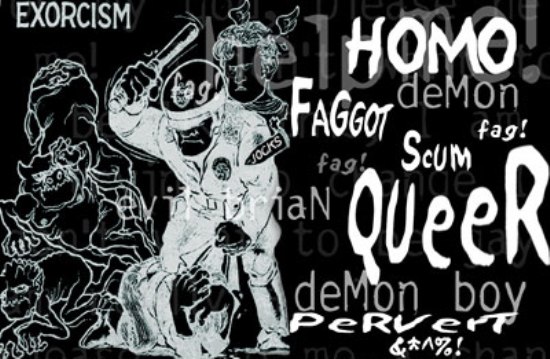10/05/2013 | Writer: Kristi Pinderi
Albanian parliament approves amendment to the penal code addressing hate crimes and including as criminal offense homophobia expressed through information technology.
Albanian parliament approves amendment to the penal code addressing hate crimes and including as criminal offense homophobia expressed through information technology, becoming the first country in the region to do so.
Kristi Pinderi and Xheni Karaj writing from Albania*
Anyone visiting the official website of the Albanian Ombudsman, an institution enshrined in the national constitution, today was confronted with only a black background, with white on red the name of a group of hackers called “Islamic Ghost Team” and a quote from Hamlet, “To be or not to be.” The hackers had also deleted the entire website.
This is the first time this particular page has been hacked and it is slightly strange, considering that the Ombudsman is one of the few public institutions that is considered reliable and enjoys broad popular support. Igli Totozani, the Head of this institution, was elected few years ago with rare bipartisan support in the otherwise intensely divided Albanian Parliament.
The approval of his office was considered a rare responsible action of the politicians, and marked the fulfillment of one of the 12 conditions set by the EU for Albania to receive a candidate membership.
The reason why specifically the ombudsman’s website was hacked seems clear to both us and the Ombudsman himself. The attack happened just few days after the Albanian Parliament approved, again unanimously, the amendments to the penal code, which dates back to the communist era, to include hate crimes and homophobia expressed online as criminal offenses.
The approval of these amendments makes Albania the first country in the region to protect the LGBT community, and other minorities, against hate crimes and hate speech.
On the day his website was hacked, Igli Totozani stated that "the approval of amendments to the penal code against homophobia represents a revolution in the Albanian legislation against homophobia." Therefore it seems likely that the hacking attack was a response to this victory for minority groups in Albania.
Suicide and a Protest
What was the cause of this revolutionary change in the penal code, and what had led up to its approval? On April 11, 2013, an 18 year old boy from Elbasan in central Albania hung himself in front of his mother’s house. Two days before, according to the media (Gazeta TemA, April 11, 2013, http://www.gazetatema.net/web/2013/04/11/vetevaret-adoleshenti-pasi-i-thone-shoket-ti-je-si-femer-e-ema-e-sheh-ne-enderr/) his friends had bullied him with the words: “You are so feminine”.
That morning, while reading about this terrible news in the left column of a local newspaper, we were shocked to find in the right column a close-up of a text message sent by Minister of Justice Eduard Halimi to a member of parliament during a hearing of the parliamentary committee in which the Ombudsman elucidated the proposed amendments to the penal code. The text message sent by minister to his colleague was: “He (i.e. the ombudsman) protects f*ggots” All on one page, hate speech -- and its result - from the streets up to the highest levels of government.
That same day, we went to Eduard Halimi’s office to protest and ask him: “Minister of Justice, whom do you protect?”

Dozens of LGBT activists and allies bombarded his Facebook page and inbox with messages protesting against his hateful words.
Later in the evening the minister sent us an email, explaining that according to him “there was a misunderstanding” and securing us that he was willing to collaborate on the new amendments of the penal code proposed by the ombudsman. The amendments were approved a few weeks later.
The first change has to do with the inclusion of hate crimes based also in sexual orientation and gender identity. Article j of Section 50 of the Penal Code: has been amended as follows:
“j) when the offense is committed due to reasons related to gender, race, color, ethnicity, language, gender identity, sexual orientation, political opinions, religious or philosophical beliefs, health status, genetic predisposition, or disability. "
The second change however is a real revolution in Albania. It concerns the inclusion in the Penal Code of the concept of crimes against the LGBT people through information technology.
"Providing to the public or distribution of deliberate materials containing racist, homophobic or xenophobic content, through the communication and information technology, is punishable by a fine or imprisonment up to two years.” This includes hate speech on forums and social networks such as Facebook or Twitter."
From now on those more than thirty extremist web pages publishing different ways of “how to kill a homosexual” (like this one reported by Historia Ime: http://historia-ime.com/en/2011-08-07-02-59-53/item/1897-ja-format-e-vrasjes-se-gejve-dhe-lezbikeve,-sipas-portaleve-islamike-ne-shqip.html), will either have to delete such information, or face up to 2 years of imprisonment. That’s probably why Shakespeare seemed a safer choice
*The authors are local leaders of the LGBT Movement
Tags: media

